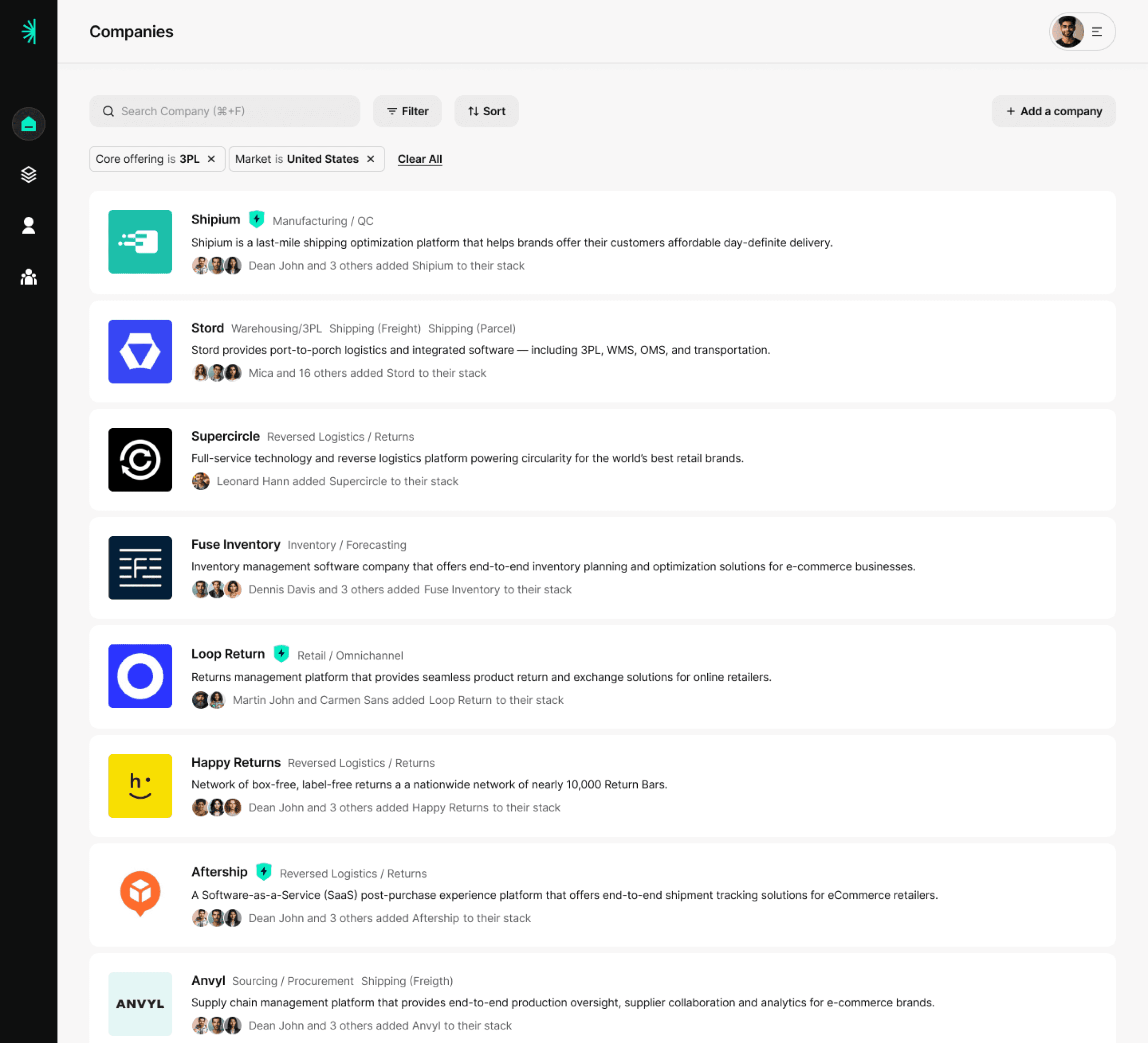This is an industry where personal relationships still matter a tremendous amount.
Emily Sewell
TLDR:
Building your network starts with putting yourself in situations where you can meet talented people — high-growth companies, well-curated communities, events, and even site visits. If you do this early and consistently, the passage of time and compounding positive interactions take care of the rest.
Technology providers are always trying to "abstract away" the complexities of supply chain.
Yet this is an industry where personal relationships still matter a tremendous amount. Having strong relationships can help you with things like:
Getting better terms and lower MOQs with your suppliers
Back-channeling which 3PLs are trustworthy
Sourcing great hires for your team
Getting expedited help from your vendors in an emergency
Being invite to speak at events and in publications
Opening the door to fractional work, consulting, advisory and angel investing opportunities
Emily Sewell is the Senior Director of Operations at Zenni Optical, having previously led the operations and supply chain teams at Hubble, Resident, and Helix Sleep. She has spent 10+ years in supply chain operations building her network, and it’s opened countless doors for her. Here are her reflections on how she has done this successfully:
1️⃣ Work at large + fast-growing companies early in your career
Emily got her start working at Birchbox. At the time, the company was growing quickly, which meant two things: it was attracting great ops talent, and the ops team was large. Many of the people she worked with at Birchbox have gone on to have great careers in all parts of the supply chain spectrum.
Emily also did tours of duty at a number of different companies. While it’s bad to leave a role too early, you also don’t want to stagnate in any one place too long. Part of the reason for this is that each new team you join yields a new crop of close connections.
By compounding relationships in each new company she joined, Emily now has a network of 100+ former colleagues who’ve collectively gotten to know her over thousands of hours. These are the kinds of opportunities that just aren’t available at smaller or less dynamic companies.
2️⃣ Become known for operating cross-functionally
Emily's first role at Birchbox wasn't in logistics, but in customer support.
It didn’t take long for her to realize that many of the problems she was facing in CS were caused upstream in the warehouse. So she took the initiative to start sending reports to the Director of Ops, helping him discover and root out problems he couldn’t see from his own metrics.
Later, as a manager, Emily started out overseeing a narrowly-focused supply chain team. But in part because of her cross-disciplinary experience, she was able to merge a number of siloed teams together under her leadership, allowing for much smoother coordination.
Apart from helping her become more valuable as an employee, these experiences radically broadened the surface area of different people Emily got to interact with — both her own colleagues, and the outside parties she was working with.
3️⃣ Put boots on the ground — especially with your suppliers and 3PLs
In supply chain roles, who you work with externally is as important as your own team. To build trust with vendors and suppliers, this often means getting on the plane and going to visit your partners’ manufacturing facilities, warehouses, or offices.
It’s a big investment of time and sometimes money, but the trust and operational context you build offline lets you move 10x faster once you’re back on Zoom calls.
4️⃣ Join relevant communities
There are many professional groups, communities, and conferences for various supply chain personas. Each community has its own strengths and weaknesses, but if you can find ones that are still highly curated and non-commercial, they can be a great source of friends and mentors.
Likewise, while networking events can feel like a waste of time, it can be really helpful to occasionally go see what’s happening at the most important trade shows and conferences. While there are no guaranteed outcomes, just by making yourself available you can make unexpected connections that can lead to interesting future opportunities.
5️⃣ Be open to building your personal brand
It can be hard for operators to get seen “outside the four walls” of their company. For one thing, they are often doing work that is proprietary and can’t be easily shared. For another thing, they’re usually unspeakably busy.
But operating experience is incredibly valuable, and if you don’t share it, you’re missing opportunities to attract great future employers, employees, and partners.
If approached by a publication or a conference to contribute your insights, give it a shot. And if you’re not seeing those opportunities land in your inbox, try carving out some time to write, make videos, or find other ways of getting your ideas heard.


